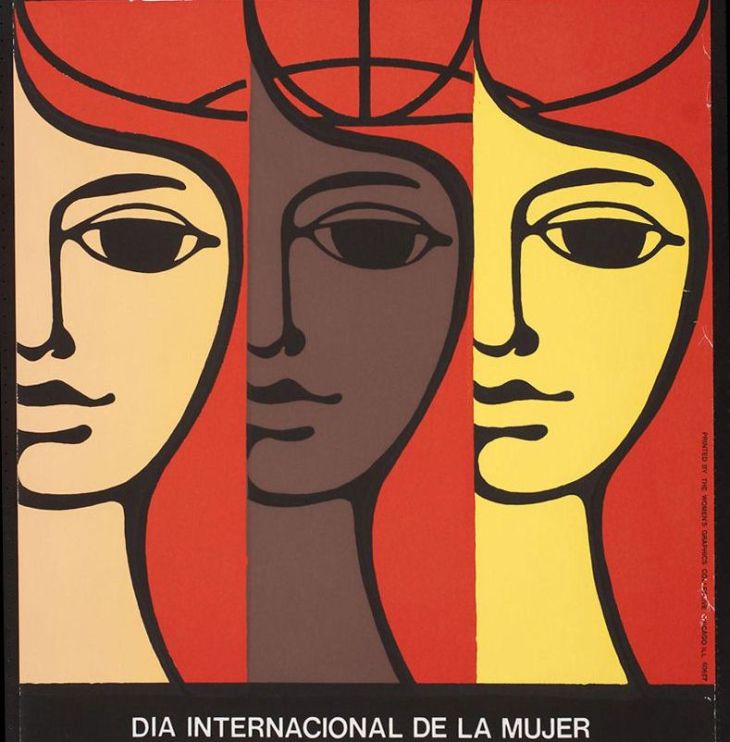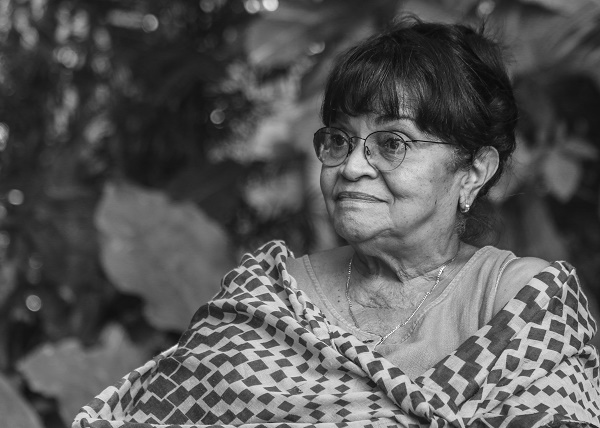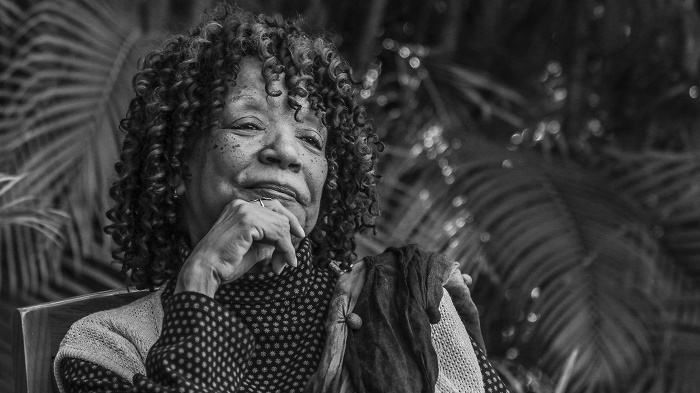
To celebrate International Womens Day – meet ten Cuban women – actors, filmmakers, writers, dancers, directors – who have made waves in Cuban culture – but you may not have heard of.
Eslinda Núñez, Cuban film, radio and television actress

Eslinda Núñez is a Cuban actress, appearing in more than 20 Cuban films including classic such as Lucia, Memories of Underdevelopment, Amada, plus Mujer Transparente, Juan of the Dead (2011), Son o no son (1980) and Un día de noviembre (1976). She also performed in more than 50 theatre productions, plus TV plays, dramas and TV soaps. Born in Villa Clara, central Cuba, her father was a bus driver, Eslinda went to work for ICAIC in film production in 1960 later trained as an actor. In 2011 she received the National Cinema Award.
“My life has been a surprise for me”, she said as she remembers her participation in films considered icons of Cuban cinema in which, she says, her participation was a twist of fate. Nevertheless, she thinks she was chosen thanks to her relentless preparation, her constant search for the change, for the new, for the latest updates on acting issues, no matter if they came from the last to arrive. “I learn a lot from beginners”, she said.
[quote from interview in 2016]
Professor (Maestra) Digna Guerra, director of the National Choir

Maestra Digna Guerra is a significant figure in Cuban choral music. She has led the Coro Nacional de Cuba, one of the country’s most prominent choral institutions, for more than 40 years. A founding member of the university-level Instituto Superior de Música (ISA), she served as the head of the choral conducting department at both the ISA and the Escuela Nacional de Arte (ENA) and trained many of the next generation of choral scholars and educators. Under her direction, the Coro Nacional de Cuba has grown to include two chamber choirs, Coro Entrevoces and D’Profundis, as well as the children’s choir Coro Nacional Infantil. Guerra has also led the Coro de la Radio y la Televisión, the choir of the Opera Nacional de Cuba, and served as assistant conductor of the Orquesta Sinfónica de Cuba, in addition to being a highly-sought international clinician and adjudicator. Guerra’s work with the cantorías, a community music project which has provided music education for hundreds of Cuban young people.
Flora Fong, contemporary visual artist

Flora Fong was born in Camagüey, Cuba, in 1949, with a Chinese father. She studied at the National School of Arts in Havana and taught for 20 years as an art professor at San Alejandro Art Academy, in Havana. She received the National Culture award in 1988. Belonging to the first generation of Cuban visual artists to emerge on the island after the 1959 Revolution, Flora Fong’s work evolved during one of the most interesting periods for art of the Caribbean. Her work reconciles the intense energy of the tropical landscape in which she was born with philosophical concepts inherited from her Chinese ancestors.
Rosario Cárdenas, dancer, choreographer, teacher, director of the Rosario Cárdenas company

Rosario Cardenas has been an outstanding dancer and choreographer. In 1989 she became director of her own company the Compañía Danza Combinatoria which is now known as Compañía Rosario Cárdenas. She was born in Havana in 1953. She trained in and taught ballet, modern and folkloric dance and developed a special concept of dance and movement through her own research project. The concept came from Mathematics, specifically Combinatorial Analysis, which includes combination, permutation and variation. She applied this in her composition, together with other languages of dance. She has also choreographed works for the Danza Contemporanea de Cuba.
Rosario is a member of the International Dance Council of UNESCO. She has received national and international recognition for her work in the world of dance. She received the national Cuban Culture award in 1993 and the National Dance Award in 2013.
Lourdes de los Santos, Cuban film director

Lourdes de los Santos Matos is a Cuban film director. She has been a judge at numerous film festivals. She is currently president of the Film, Radio and Television Association of UNEAC.
Born in Havana, 1955, Lourdes graduated in Art History from the University of Havana. She trained in production and assistant directing and worked as a film producer and assistant director, and a video documentary maker at ICAIC. She has worked on many films including ‘Espiral’ about Alicia Alonso and her own documentaries include ‘Ellas Crean’ in 2018 about Cuban women in culture.
Nancy Morejón, poet, essayist, literary critic, translator

Nancy Morejón is the best known and most widely translated woman poet of post-revolutionary Cuba. Born in 1944 in Havana to a militant dock worker and a trade-unionist seamstress, Morejón graduated from Havana University, where she majored in French, and became the first black woman poet to publish widely and be accepted as a professional writer, critic, and translator.
Morejón has received the Critic’s Prize (1986) and Cuba’s National Award for Literature (2001). She has collaborated with prominent musicians, playwrights, and actors, and extended her artistic talents into the visual arts. She directs the Caribbean Studies Centre at Casa de las Américas, Havana.
Morejón’s work addresses contemporary issues of ethnicity, gender, history, politics, and Afro-Cuban identity. Her poems stand as vibrant reflections on the mix of Spanish and African cultures in Cuba, what it means to be a child of both traditions, and how the bright threads of this heritage are part of the greater web of the African experience in the Americas. Read more here
Verónica Lynn, film, theatre and TV actress and theatre director

Born 1931 in Pinar del Rio, Lynn is famously quoted in Cuba for saying “I always dreamed of being an artist. I say that I am the happiest woman in the world because I managed to be what I always wanted: an actress.” She has had a long career appearing in many major Cuban films such as Una Pelea Cubana contra los demonios (1971), Lejania (1985), La Bella del Alhambra (1989), Mujer Transparente (1990), La Anunciacion (2009).
Lynn declared herself a disciple of the acting method of the great Russian creator Konstantin Stanislavski, although she pointed out that every artist should have an open mind and appreciate other great teachers such as Jerzy Grotowski, Eugenio Barba, Bertolt Brecht.
In 2003 she received the National Theatre Award. Despite her retirement, Verónica Lynn has continued to act in radio and TV dramas such as in the recent popular Cuban TV series ‘Of loves and hopes’.
Marta Campos, composer, guitarist and one of the main female singer songwriters of the Nueva Trova movement in Cuba

Born 1954 in Havana, Campos studied guitar at the Amadeo Roldán conservatory and joined the Nueva Trova movement in 1978. She travelled to Nicaragua several times during the 1980s performing with other Nueva Trova musicians. She is known for bringing together the voice with very high quality guitar playing.
Aida Bahr, Cuban writer

Aida Bahr Valcárcel is a fiction writer, essayist, screenwriter, researcher and editor. She was director of Editorial Oriente, the main publishing house in Eastern Cuba and an important figure in extending the Havana book fair across the country. Born 1958 in Holguin she later moved to Santiago de Cuba. She reflects in her stories the main problems of current Cuban reality with a fresh language and successful handling of contemporary narrative techniques. She has had published many short stories in anthologies and also her own books of short stories and a novel. She won the Cuban Alejo Carpentier Prize for literature in 2006 for her book of short stories about women’s lives ‘Ofelias’. Read more about ‘Ofelias’ here.
Fátima Patterson – theatre actor, director and playwright

Fatima was born into a black working class family in the Santiago neighbourhood of Los Hoyos, she is the founder of a company that has made Santiago theatre the mainstay of Cuban theatre. She won the Cuban National Award for Theatre in 2017.
In 1970 Fatima started working on television and radio as an actress, and later as a programme director, until she joined the Conjunto Dramático de Oriente, which became the Santiago Cabildo theatre Company, where she found a home, a living space, for the creation and dialogue between actors. She founded the Macubá collective in 1992, and she actively remains at the helm of that group. She has stood out due to her approach of researching and confronting experiences through theatre; as well as working with components inherent to folklore, using the Patakines, the oral traditions of Palo Monte religious practice and Caribbean poetry. Macubá has been a vital space for Fátima Paterson, a home, a laboratory for research and reflection of Afro-Cuban traditions on the Cuban stage. From that, her creative space, she has established a school, a space for the development of new faces in Cuban theatre with a consolidated aesthetic. Read more about Fatima Patterson here

You must be logged in to post a comment.